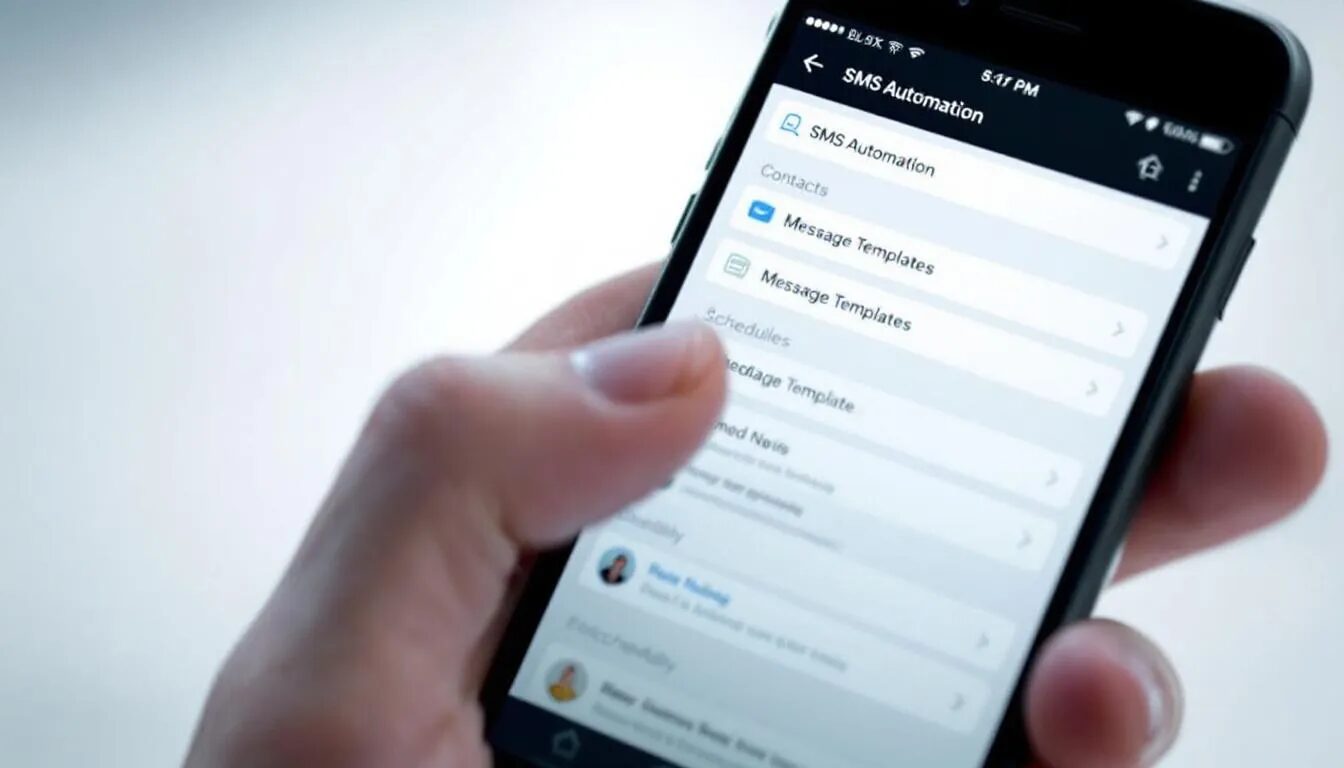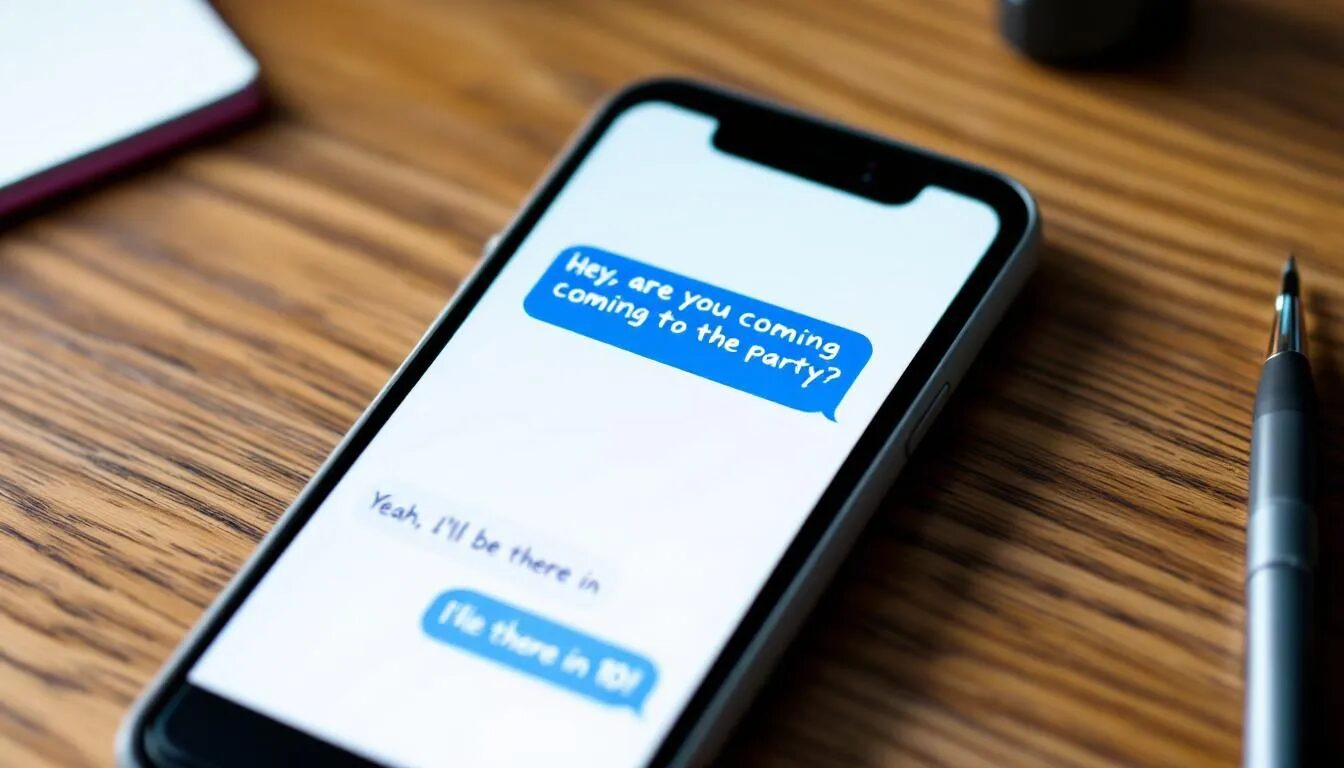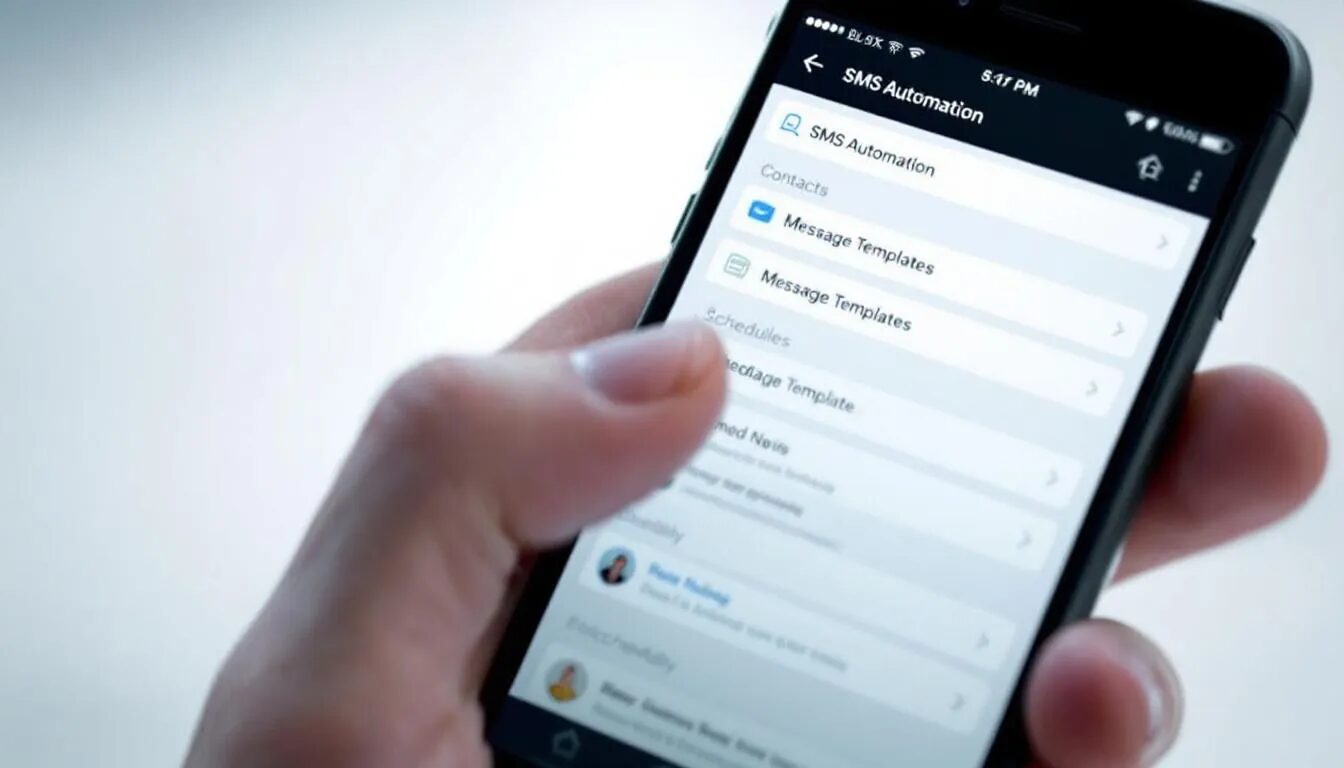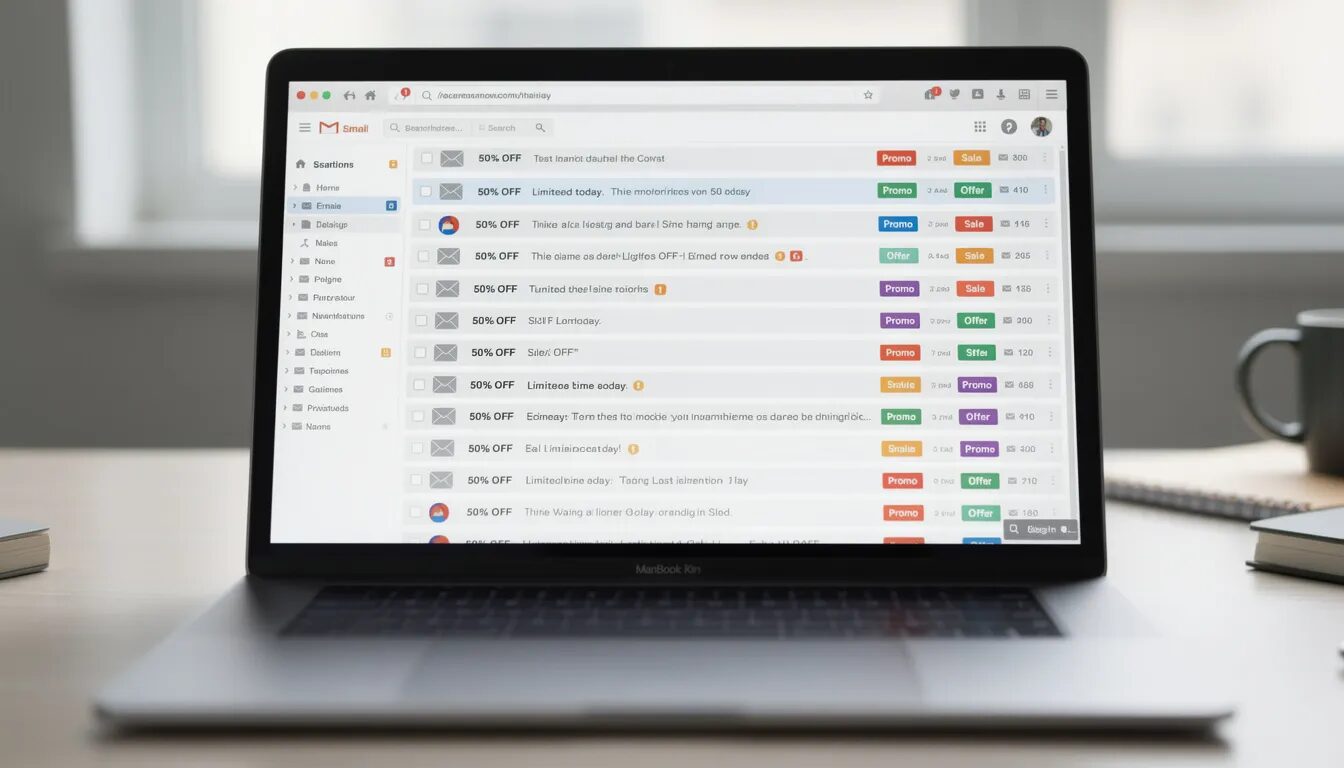
Top SMS Message Strategies: Boost Engagement
Looking for a reliable way to boost communication and sales? An SMS message, or Short Message Service, provides an immediate, effective, and cost-friendly method. This article breaks down the top strategies using SMS messages to enhance engagement and drive sales success.
Introduction to Mobile Messaging
Mobile messaging has rapidly become a cornerstone of modern business communication, thanks to the widespread adoption of mobile devices. With billions of SMS messages sent every day, businesses now have unprecedented opportunities to connect with their customers wherever they are. SMS messaging, or short message service, remains one of the most reliable and direct ways to deliver text messages between mobile phones, ensuring that important information reaches customers instantly.
Beyond traditional SMS, mobile messaging has evolved to include MMS for multimedia content, RCS for rich, interactive experiences, and integration with popular messaging apps. This evolution allows businesses to tailor their communication strategies, using SMS marketing tools to send targeted messages that resonate with their audience. Whether it’s a simple text message or a more dynamic campaign, text messaging enables businesses to build relationships, keep customers informed, and drive engagement.
By leveraging SMS marketing campaigns, companies can reach customers with timely updates, promotions, and personalized offers. The versatility of mobile messaging ensures that businesses of all sizes can benefit from this powerful communication channel, making it an essential part of any customer engagement strategy.
Key Takeaways
- SMS marketing boasts a high open rate of nearly 98%, making it a highly effective tool for reaching customers quickly and efficiently.
- Personalized messaging and timely promotional campaigns enhance customer engagement, driving sales and loyalty through targeted communication strategies.
- Compliance with regulations like TCPA and providing clear opt-out options build trust and ensure transparency, making customer consent essential in SMS marketing.
Understanding SMS Messages
SMS, or Short Message Service, has a rich history that began with a simple “Merry Christmas” sent from a PC to a mobile phone in 1992. The concept of SMS was birthed in 1984 through the collaboration of French and German organizations, grounded in the principles of radio telegraphy technology. This foundational technology paved the way for a communication revolution. SMS was designed to support short messages within mobile network protocols, with standards such as GSM and 3GPP defining how these messages are transmitted and managed across different systems.
Initially, SMS messages were limited to a maximum length of 128 bytes, which later expanded to 160 seven-bit characters. Despite its simplicity, SMS quickly gained popularity due to its ease of use and the immediacy of delivery. By January 2000, SMS traffic across Europe reached an astounding 4 billion multiple messages, showcasing its rapid adoption.
The turning point for SMS messaging in the United States came in 2007 when Americans began sending more sms texts than making phone calls each month. This shift highlighted a significant change in communication preferences, favoring quick, concise sms text messages over lengthy phone calls. The primary benefit of SMS lies in its ability to reach employees and customers swiftly, allowing them to receive text messages quickly, making it a valuable tool for businesses. For more information, you can reach us at our phone number. The cell phone has played a crucial role in enabling a wide range of mobile services, including premium content delivery, emergency alerts, digital transactions, voting systems, and even law enforcement activities, demonstrating the versatility and importance of SMS in modern communication.
SMS marketing capitalizes on this quick reach, allowing businesses to send images and marketing messages, promotional offers, and important updates directly to their customers’ mobile devices through mobile messaging and text marketing. The high open rate of SMS, nearly 98%, underscores its effectiveness as a communication channel. Unlike email marketing that often gets lost in crowded inboxes, SMS messages are typically opened and read within minutes of receipt via SMS MMS. Additionally, utilizing sms technology, sms apps, and sms marketing tools can enhance the efficiency of these communications, especially when using an sms service and managing an sms list. Modern android devices come pre-installed with Google Messages, which supports both SMS and RCS messaging, further expanding the reach and capabilities of mobile messaging.
As businesses continue to explore various marketing channels, SMS remains a cost-effective solution with low per-message costs compared to other methods. Whether it’s sending a simple message or utilizing rich communication services (RCS) for more interactive content, SMS messaging offers a versatile platform for customer communication.
The Welcome Message
The welcome message is a crucial first step in establishing a positive relationship with new subscribers. It serves as a confirmation of their opt-in, ensuring they know what to expect from future communications, including any incoming message. A well-crafted welcome message can set the tone for a lasting relationship, highlighting the benefits they will receive by staying opted in.
Businesses often collect phone numbers through opt-in forms or pop-ups to build their contact list for SMS marketing.
An effective welcome message should:
- Be concise yet informative.
- Introduce your brand.
- Outline the type of content subscribers can expect.
- Provide clear instructions on how to opt-out if they choose to.
Automated welcome series messages can further enhance initial customer engagement by delivering immediate value upon subscription. Maintaining an organized contact list ensures that welcome messages reach the right subscribers and supports effective segmentation.
Clearly stating terms and conditions, including messaging frequency and opt-out instructions, builds trust and transparency with the audience. This initial customer communications lays the foundation for successful customer engagement and sets the stage for future interactions.
Promotional SMS Campaigns

Promotional SMS campaigns are a powerful tool for driving traffic and boosting sales. Text message marketing is a highly effective strategy for delivering promotional content directly to customers. These campaigns leverage the high open rates of SMS to inform customers about upcoming deals, new product launches, and exclusive offers. The key to an effective promotional SMS is its conciseness; the message should deliver key information quickly to maintain recipient interest.
Incorporating personalized messages and limited-time offers can enhance the effectiveness of promotional SMS campaigns. For instance, using FOMO tactics by highlighting item popularity can significantly boost engagement. Additionally, offering a limited-time discount in welcome messages can incentivize immediate purchases from new subscribers. Businesses can also send promo codes via SMS to incentivize purchases and reward loyal customers.
Businesses can also expand their small business customer base by hosting text-to-win giveaways or contests, creating excitement and encouraging participation. It’s essential to schedule time-sensitive SMS campaigns around popular shopping dates to maximize impact. By strategically planning and executing promotional SMS campaigns, businesses can foster customer loyalty, reach customers, and drive significant sales growth. SMS can also be integrated into a broader marketing campaign, working alongside other channels to maximize reach and engagement.
Abandoned Cart Recovery
Abandoned cart recovery is a critical strategy for reclaiming lost sales. When a customer adds products to their cart but doesn’t complete the purchase, an SMS reminder can nudge them to return and finalize the transaction. The immediacy of SMS push notifications makes them more likely to be noticed than crowded email inboxes.
Timing is crucial for abandoned cart messages. Sending a reminder within two hours of cart abandonment can significantly increase the chances of conversion. Creating a sense of urgency in these messages can further incentivize shoppers to complete their purchase.
Offering incentives like discounts or free shipping in the SMS can effectively motivate customers to finalize their purchases. Personalizing these messages by addressing the customer by name can enhance engagement and conversion rates. Leveraging these strategies effectively reduces cart abandonment rates and boosts sales.
Customer Feedback via SMS
Gathering customer feedback is essential for improving products and services. SMS provides a direct and convenient way to solicit feedback from customers. Businesses can send messages asking for opinions on new product ideas or service experiences, making customers feel valued and involved.
Including links to surveys in text messages makes it easy for customers to provide feedback. Customers prefer personalized messages, as customers are more likely to engage when they feel their opinions matter.
Engaging in one-on-one conversations with loyal customers who reply to feedback SMS can offer valuable insights and strengthen customer engagements to build relationships. This direct line of communication can lead to meaningful improvements in customer satisfaction and loyalty.
Back-in-Stock Alerts
Back-in-stock alerts are an excellent way to inform customers that a previously sold-out item is now available for purchase. These messages can drive immediate action, especially if combined with incentives like discounts or free shipping.
Automating back-in-stock messages ensures timely delivery and keeps customers informed without manual effort. Combining SMS and email notifications can increase the chances of reaching customers who prefer different communication channels. By keeping customers in the loop, businesses can enhance customer satisfaction and drive repeat purchases.
Appointment Reminders
Appointment reminders via SMS are a simple yet effective way to keep customers informed and reduce no-shows. The high visibility and quick delivery of text messages make them a preferred method for receiving important notifications.
Sending SMS reminders can create a sense of urgency, prompting quicker responses from clients regarding their appointments. This practice not only improves customer engagement but also ensures better utilization of business resources.
Personalized Messaging
Personalized messaging is a cornerstone of successful SMS marketing. Tailoring individual messages to recipients can significantly enhance engagement rates. This personalization can start from the welcome message, making the recipient feel valued from the outset.
Effective SMS campaigns leverage audience segmentation to tailor messages for specific customer groups. This can be achieved through segmentation features in SMS CRMs, allowing businesses to send relevant messages based on customer preferences and behaviors.
Using geographical data and behavior-based insights, businesses can provide tailored product recommendations and localized offers. Engaging customers through two-way SMS interactions can foster stronger relationships and enhance satisfaction.
By crafting messages that reflect individual customer behaviors and preferences, businesses can significantly improve interaction rates and drive sales. Personalized SMS campaigns based on customer behavior can enhance sales and customer loyalty.
SMS Marketing for Ecommerce and Small Businesses
For ecommerce brands and small businesses, SMS marketing offers a direct and cost-effective way to reach customers and boost sales. By sending personalized SMS text messages, businesses can engage customers with tailored promotions, order updates, and exclusive offers that drive immediate action. SMS marketing platforms and tools make it easy to create, schedule, and manage targeted SMS marketing campaigns, ensuring the right message reaches the right customer at the right time.
Google Messages and other messaging apps now support RCS business messaging, allowing businesses to send branded, interactive messages that stand out in a crowded digital landscape. This is especially valuable for small businesses looking to differentiate themselves and foster customer engagement without a large marketing budget.
Collecting phone numbers through website popups, in-store signups, or online forms enables businesses to build a valuable SMS list. With this list, small businesses can send timely text messages to promote new products, announce flash sales, or share important updates. SMS marketing tools also provide analytics to track campaign performance, helping businesses refine their messaging and maximize results.
Ultimately, SMS marketing empowers small businesses and ecommerce stores to reach customers directly, build loyalty, and drive repeat purchases—all while maintaining a personal touch that customers appreciate.
Business Messages and Customer Support
Business messages play a crucial role in delivering exceptional customer support. By leveraging SMS messaging, companies can provide fast, convenient assistance that meets customers where they are—on their mobile phones. Customer support teams can use SMS to respond to inquiries, send order confirmations, and provide real-time updates, ensuring customers always feel informed and valued.
RCS business messaging takes customer support to the next level by enabling businesses to send branded messages with interactive features like buttons, carousels, and quick replies. These enhancements make it easier for customers to engage with support teams, track orders, or resolve issues without leaving the messaging app.
Automated business messages, such as appointment reminders or shipping notifications, streamline customer communication and free up support resources for more complex inquiries. By integrating SMS and RCS into their customer support strategy, businesses can build stronger relationships, increase customer loyalty, and deliver a seamless support experience that keeps customers coming back.
In today’s fast-paced world, customers expect quick, personalized support. SMS messaging and RCS business messaging provide the tools businesses need to meet these expectations, turning every interaction into an opportunity to strengthen customer relationships.
Compliance and Consent
Compliance and consent are paramount in SMS marketing. Legal regulations, such as the Telephone Consumer Protection Act (TCPA) and the CAN-SPAM Act, emphasize the importance of obtaining express written consent from consumers before sending promotional messages.
Businesses must provide clear opt-out instructions in every message to respect user choices and ensure compliance with data privacy. Maintaining a record of opt-out requests is crucial for adhering to privacy laws and protecting consumer information.
Compliance with regulations like GDPR and TCPA is non-negotiable for any SMS marketing platform. It is also illegal to send SMS messages to individuals who have opted out or are registered on the National Do Not Call Registry. Including the sender’s business name in every message ensures transparency with recipients.
Opt-Out Options
Offering easy opt-out options builds trust with consumers and ensures that the audience is genuinely interested in receiving your messages. Businesses should incorporate clear unsubscribe options in every SMS, using keywords like ‘STOP’ or ‘CANCEL’ for easy opt-out.
Tracking attrition rates helps identify issues with messaging or content relevance based on the number of subscribers opting out. This feedback can be invaluable for refining your SMS marketing strategy.
Comparing SMS with Other Channels
SMS messages boast higher open rates compared to emails, making them a more effective communication tool:
- SMS marketing has open rates as high as 98%, significantly exceeding the engagement levels of other channels. In fact, SMS typically achieves much higher open and click-through rates than marketing emails, making it a superior choice for immediate customer engagement.
- RCS messages include rich sms media like videos and images, offering enhanced engagement potential with open rates above 90%.
- SMS remains a cost-effective solution due to lower infrastructure requirements compared to RCS.
While RCS can integrate chatbot functionalities for more interactive customer engagement, it relies on internet connectivity, which can limit its effectiveness in areas with poor network coverage. SMS, on the other hand, provides broader accessibility and is a practical choice for direct communication.
RCS messages can fall back to SMS if RCS is unavailable, ensuring that google messages are still delivered to customers through an rcs campaign. By understanding the strengths and limitations of each of the multiple channels, businesses can choose the best communication method for their needs, including rcs business messaging, business messages, rcs messaging, and wireless carriers, allowing them to receive messages effectively through a messaging app. Additionally, an rcs message can enhance customer engagement.
Best Practices for Timing
Timing is critical for maximizing engagement rates in SMS marketing. Key points include:
- Scheduling text messages from 9 a.m. to 6 p.m. can enhance visibility and interaction.
- Revenue per send peaks when SMS messages are dispatched during lunch breaks.
- Revenue per send also peaks post-dinner.
Sending SMS marketing messages between 11 a.m. and 4 p.m. can significantly improve open rates. Personalizing send times based on subscriber time zones can further enhance message effectiveness.
To avoid disturbing customers, setting quiet hours for SMS campaigns, typically from 8 p.m. to 12 p.m., is advisable. Testing different sending times for back-in-stock messages can help identify when audiences are most responsive.
Integrating SMS with CRM
Integrating SMS messaging with your CRM enhances customer relationship management and marketing efforts. SMS communication through CRM systems results in higher engagement rates since messages are typically opened and read.
Integration with existing tools like CRMs and other applications is vital for seamless operation. This integration can create a seamless customer experience and improve overall communication effectiveness.
By leveraging CRM tools, businesses can tailor their SMS campaigns based on customer data, enhancing personalization and engagement. This holistic approach to customer communication ensures that businesses can build stronger relationships and foster loyalty.
Choosing the Right SMS Marketing Platform
Choosing the right SMS marketing platforms is crucial for maximizing marketing efforts and achieving better customer engagement. Advanced features like short codes, OTPs for secure interactions, and omnichannel capabilities can enhance SMS marketing effectiveness.
Robust analytics and reporting tools are essential for tracking the success of SMS campaigns. Scalability is also crucial; the platform should grow with your business needs and allow for essential feature expansion.
When evaluating an SMS platform, consider the following:
- An intuitive user interface is important, as it allows users to easily set up campaigns and manage contacts without extensive training.
- The main screen of a good SMS marketing platform should provide quick access to key features like campaign setup, analytics, and integrations, making navigation straightforward.
- A responsive support team is essential for helping users troubleshoot issues and maximize the effectiveness of their SMS marketing efforts.
- Research user reviews and experiences to gauge the platform’s reliability.
- Ensure the platform excels in message delivery speed.
- Verify the accuracy of message delivery to maintain effective communication.
Automating SMS Campaigns

Automating SMS campaigns can significantly enhance efficiency and allow marketing teams to manage more tasks effectively. Automation enables application to person (A2P) messaging, allowing businesses to send automated messages from systems directly to customers for notifications, reminders, and marketing. Benefits and features include:
- Reducing the time spent on manual communications
- Enabling businesses to focus on other essential tasks
- Scheduling messages for specific times using services like Textmagic to ensure timely delivery.
Workflows for automated SMS marketing can greatly improve efficiency by allowing messages to be sent based on customer behavior. For example, automated SMS reminders can simplify the process of keeping clients informed about their upcoming appointments. Timely messaging triggered by customer actions increases the likelihood of engagement compared to fixed-schedule messages.
Automation can range from simple automated text messaging to complex re-engagement campaigns, ensuring businesses are responsive to customer actions. Tailoring customer journeys based on real-time data and behavior can enhance automated messaging strategies and drive better results.
Measuring SMS Campaign Success
Measuring the success of SMS campaigns is crucial for understanding their performance and optimizing future efforts. Key performance metrics in SMS marketing include open rates, click-through rates (CTR), and conversion rates, which together reflect how well campaigns are resonating with subscribers.
Response rates measure how many subscribers are engaging in two-way communication by replying to SMS messages, providing insight into customer interaction and satisfaction. Analyzing these key metrics allows marketers to refine their SMS strategies, targeting the right audience more effectively and enhancing campaign effectiveness.
Continuously monitoring these metrics helps identify areas for improvement and make data-driven decisions to maximize the impact of SMS marketing campaigns. This ongoing optimization ensures that SMS remains a powerful tool for driving engagement and sales.
Summary
In summary, SMS marketing is a versatile and powerful tool for businesses looking to boost engagement and sales. From understanding the fundamentals of SMS technology to mastering personalized messaging and compliance, there are numerous strategies to leverage SMS effectively. By incorporating welcome messages, promotional campaigns, abandoned cart recovery, customer feedback, back-in-stock alerts, and appointment reminders, businesses can enhance their customer communication and drive better results.
The key to successful SMS marketing lies in understanding your audience, personalizing messages, complying with legal regulations, and continuously measuring and optimizing your campaigns. With the right strategies and tools, SMS can become a cornerstone of your marketing efforts, fostering stronger customer relationships and driving significant growth. Embrace the potential of SMS marketing today and watch your business thrive.
Frequently Asked Questions
What is the primary benefit of using SMS marketing for businesses?
The primary benefit of using SMS marketing is its impressive open rate of nearly 98%, which allows businesses to engage customers efficiently and directly. This high engagement ensures messages are seen, driving timely responses and conversions.
How can businesses ensure compliance with SMS marketing laws?
To ensure compliance with SMS marketing laws, businesses must obtain explicit written consent from consumers before sending messages and include a clear opt-out option in each communication. This approach not only adheres to legal requirements but also respects consumer preferences.
What are some effective strategies for abandoned cart recovery via SMS?
To effectively recover abandoned carts via SMS, send reminders within two hours of abandonment, create a sense of urgency, and consider offering incentives such as discounts or free shipping. Implementing these strategies can notably enhance your conversion rates.
How can automation benefit SMS marketing campaigns?
Automation significantly boosts SMS marketing campaigns by streamlining manual tasks and enabling timely, personalized messaging tailored to customer behavior. This not only enhances efficiency but also improves the overall effectiveness of your campaigns.
What metrics should businesses track to measure the success of their SMS campaigns?
To effectively measure the success of your SMS campaigns, focus on key metrics such as open rates, click-through rates (CTR), conversion rates, and response rates. These metrics will offer valuable insights into your campaign’s performance and customer engagement.
Want More Tips?
Looking for Check out our latest guides and resources to elevate your marketing game
© 2025, VerticalResponse. All rights reserved.



